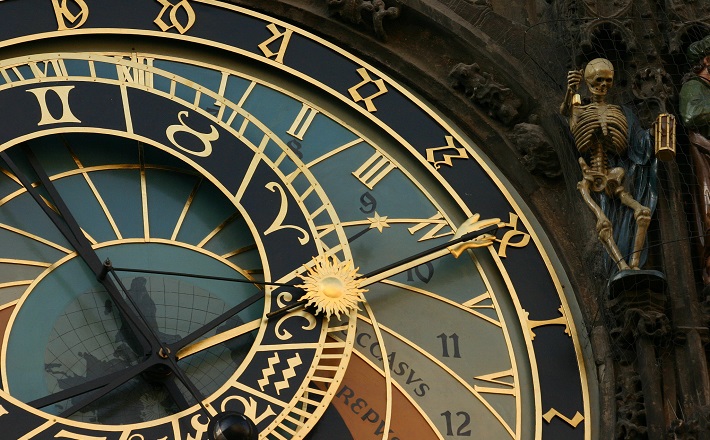Commentary on Isaiah 2:1-5
Christians share a common theological conviction with the authors of Isaiah 2:1-5: Our most precious promises are attached to tangible realities like land, mountains, temples … bread, water, and wine.
In these concrete ways, God draws near to God’s people and to the world (compare to Exodus 25:8). Isaiah 2 describes a day when God’s promises to Judah — so often obscured by defeat, judgment, and historical circumstances — will be fully realized in history. It will be a day when glory outshines shadow, when joy extinguishes sorrow, when peace silences violence, when rebellion cedes to obedience — when faith becomes sight.
Isaiah 2:1-5 belongs to a body of texts associated generally with Zion, the Temple, and the city of Jerusalem (Psalms 46, 48, 78; Isaiah 11:1-9; 60-62; Hagar 2:6-9; cf. Revelation 21-22). While varied in their contours and claims, these texts are generally characterized by a common set of theological assumptions: (a) Yhwh is a king whose reign is cosmic in scope; (b) he has chosen Zion as the center of his reign over the world; (c) Zion serves as the center of God’s governance over creation, making Zion the axis mundi; (d) at Zion Yhwh establishes order by bringing chaos to an end.
The theology embodied by these texts is not only an Old Testament reality. The New Testament is also shaped by the theology of Zion, most especially in the book of Revelation (Revelation 21-22), which insists that Jerusalem is the bride of the Lamb (Revelations 21:9), and a destination for the nations of the earth (Revelations 21:24-27).
Israel was not at all unique in claiming that it’s capital city was the center of world governance. Many other cultures from Mesopotamia to Egypt made similar claims, especially in the royal propaganda of the ancient Near East. Israel adopts and adapts these traditions, utilizing them to speak about God’s promises to Zion and to David.
Canonically speaking, the word of promise in Isaiah 2:1-5 is embedded within prophetic oracles of judgment (see Isaiah 1:21-31; 2:5-22). In the prior chapter, the “holy” city of Jerusalem is accused of murder, rebellion, injustice, and corruption (Isaiah 1:21-23). And the texts immediately following Isaiah 2:1-5, claim that God’s people have forsaken God’s ways (Isaiah 2:6-9). In the first two chapters of Isaiah, then, Jerusalem is offered words of both judgment and salvation. These words of judgment, however, are not in contradiction to the promise of Isaiah 2:1-5. In fact, they are in service of it:
Therefore says the Sovereign, the Lord of hosts, the Mighty One of Israel:
Ah, I will pour out my wrath on my enemies,
and avenge myself on my foes!
I will turn my hand against you;
I will smelt away your dross as with lye
and remove all your alloy.
And I will restore your judges as at the first,
and your counselors as at the beginning.
Afterward you shall be called the city of righteousness,
the faithful city (Isaiah 1:24-26).
In this text, promise and judgement are not contradictory realities: judgment serves promise, and contributes to bringing about the fulfillment of promise. The city of God will one day be transformed from alloy to pure metal. She will be a holy and magnificent magnet for the nations, but only after a season of judgment and refinement, when God will turn God’s hand against the city. God must first approach Zion in the form of an enemy before showing himself as the fulfiller of promises.
The promises in this text are utterly absurd when examined against Israel’s ancient history. The “mountain of the Lord” (i.e., the temple mount, known also as Zion) was never the most prominent mountain, even if one only considers nearby peaks (Psalm 125:2). The nations have never streamed to Jerusalem to learn divine teaching; Yhwh has yet to play the role of international conflict mediator; and the waging of warfare continues to afflict creation to this very day. Whatever realities this text speaks of, they exist primarily in the realm of promise and hope, not in the realm of reality.
Similar things could be said about the second advent of Christ, which we pray for longingly in this season. The church’s affirmation that Christ will one day return to change what we know by faith into sight is similarly absurd. Like the promises of God to Isaiah, the precious promises of Christ’s second coming — that truth will defeat falsehood (Revelations 19:11-21), that the dead will rise (Revelations 20:1-6), that the devil and his forces will be destroyed (Revelations 20:7-10), and that death itself will die (Revelations 20:14-15) — are hidden behind the tragedies of history.
The promise of Christ’s return contradicts so much of what we see in the world. It is a joy to celebrate Christ’s coming in the past, but in this season of Advent we must pray earnestly for the faith to believe joyfully in Christ’s future coming, in all its glory and absurdity.


November 27, 2016